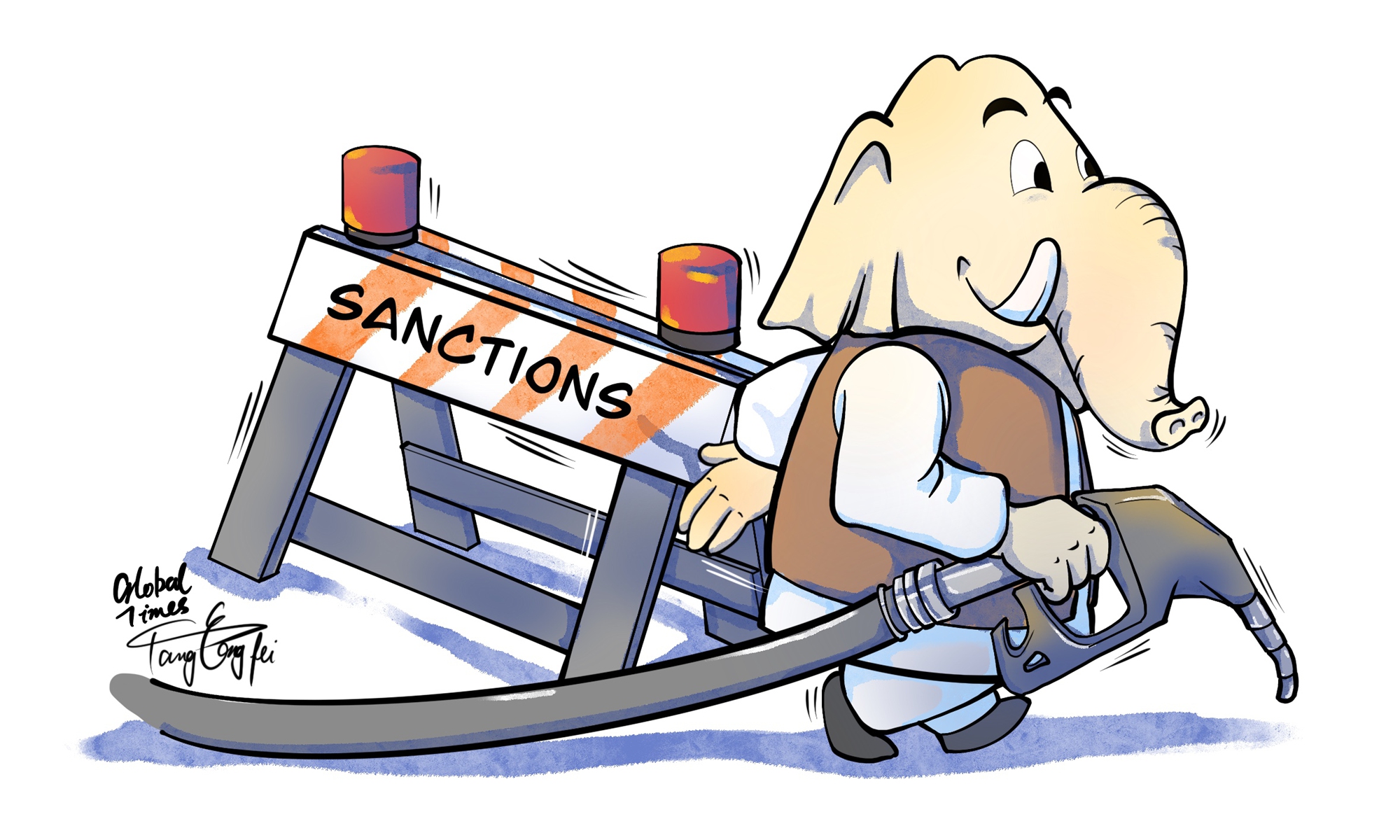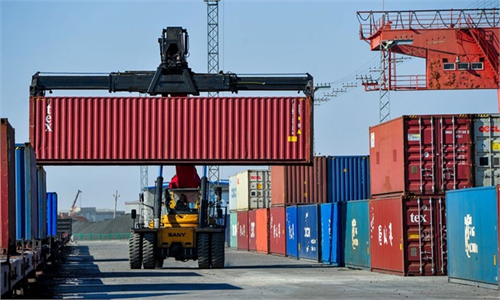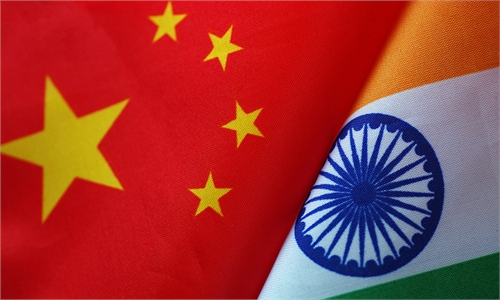
Illustration: Tang Tengfei/Global Times
Despite growing pressure from the US, the Indian government is considering taking up a Russian offer to import crude oil and other commodities at a heavy discount, Reuters reported recently, citing anonymous Indian officials.
"India, which imports 80 percent of its oil needs, usually buys only about 2-3 percent from Russia. But with oil prices up 40 percent so far this year, the Indian government is looking at increasing imports if it can help reduce its rising energy bill," Reuters said on Monday.
Actually, maintaining normal trade with Russia or any country is New Delhi's legitimate rights. Some in the US and the West may criticize Indian government for not following the heels of Washington to shun Russian commodities, but India has every reason to protect its own economy, which is increasingly affected by the sky-rocketing oil prices on the global market.
As the sixth largest economy in the world, India is a country short of crude reserves. According to data platform Worldometers, India ranks far behind on the list of oil reserves in the world, with a reserve volume accounting for 0.29 percent of the global total. Under such circumstances, India has no choice but to keep purchasing oil from other countries, including Russia.
And, Indian currency, rupee, is weakened, which is heaping pressure on India's oil imports. In 2021, Indian rupee was viewed as one of the weakest currencies in Asia, recording a fourth straight year of devaluation against the US dollar and the euro. And it may be difficult to reverse course in 2022, especially at a time when the US' monetary policy is turning hawkish in order to control inflation.
Indian economy has already felt the pinch of the surging prices of oil and other raw materials in the world. Per data from India's Statistics Ministry on Monday, India's consumer price index increased 6.1 percent in February, reaching an 8-month high and higher than broad market expectations.
If New Delhi cannot find a way to control its oil import budget, the South Asia's largest emerging market may falter, putting the country's nascent recovery from the COVID-19 pandemic in danger.
After a "worst-ever economic contraction of 7.7 percent" in 2020-21 fiscal year, the Indian economy, which has seen some green shoots last year, is facing spiking inflation. Not only that the current inflation rate has surpassed the 6-percent upper limit, a 10 percent rise in oil prices will add about 10 basis points to the CPI inflation, Indian media outlets reported.
Since the Russia-Ukraine military conflict broke out in February, a number of the Biden administration officials have threatened to sanction India if it does not join the US-led Western coalition in stifling Russia.
But India has its own economic needs to take care of. It has moved to resist the pressure from the US and its allies, such as planning to set up a rupee-ruble payment mechanism for trade and considering Chinese yuan as a point of reference, according to Indian media reports.
To sum up, it is clear that imposing unilateral sanctions on Russia or any other country won't resolve the problems, which only leads to new problems, as was stressed by China's Foreign Ministry. Economic sanctioning will result in a situation where multiple players lose, which will disrupt the process of a political settlement at the earliest date.
The author is an editor with the Global Times. bizopinion@globaltimes.com.cn



